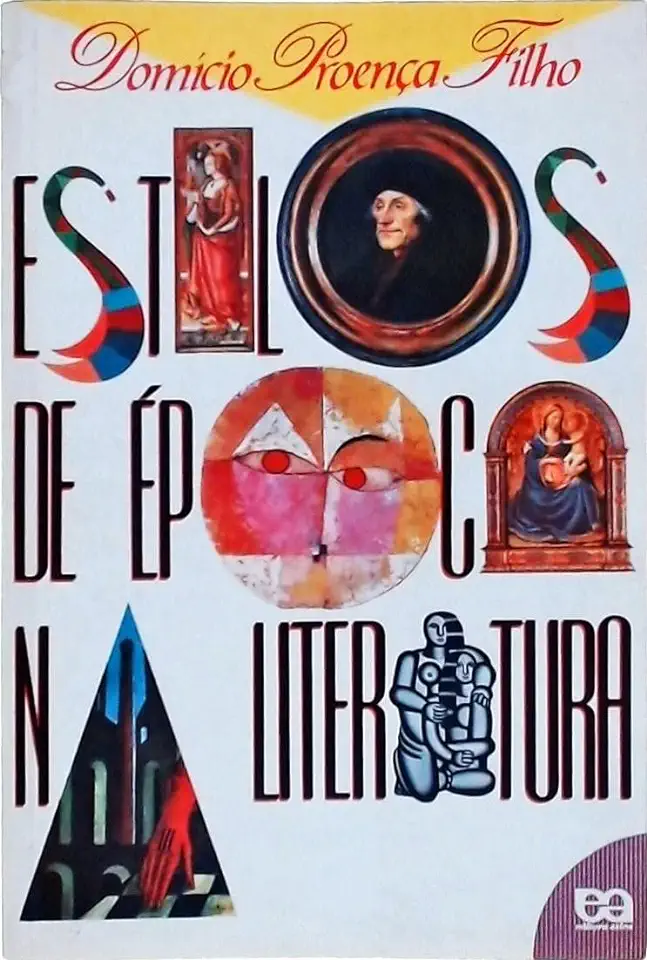
Literary Periods - Domício Proença Filho
Literary Periods: A Comprehensive Guide to the History of Literature
Introduction
In this comprehensive and engaging book, renowned literary scholar Domício Proença Filho takes readers on a captivating journey through the major periods of literary history. From the dawn of written literature to the present day, Proença Filho provides a detailed and insightful analysis of the key literary movements, genres, and authors that have shaped the world of literature.
Ancient Literature
The book begins with an exploration of ancient literature, delving into the rich literary traditions of the ancient world. Proença Filho examines the great works of Homer, Virgil, and Ovid, as well as the lesser-known literary treasures of ancient Egypt, Mesopotamia, and India. He explores the themes, styles, and techniques that characterized ancient literature, providing readers with a deep understanding of the foundations of literary expression.
Medieval Literature
The journey continues into the Middle Ages, where Proença Filho sheds light on the vibrant literary landscape of the medieval period. He discusses the rise of Christianity and its profound impact on literature, examining the works of Dante, Chaucer, and the troubadours. Proença Filho also explores the development of vernacular languages and the emergence of new literary genres, such as the romance and the fabliau.
Renaissance Literature
The book then moves on to the Renaissance, a period of remarkable cultural and intellectual flourishing. Proença Filho analyzes the works of Shakespeare, Cervantes, and Petrarch, highlighting their contributions to the development of drama, poetry, and prose. He explores the humanistic ideals of the Renaissance and the renewed interest in classical literature, providing readers with a deep understanding of this transformative period in literary history.
Enlightenment Literature
The journey continues into the Enlightenment, an era of reason and scientific inquiry. Proença Filho examines the works of Voltaire, Rousseau, and Diderot, exploring their critique of social and political institutions and their advocacy for individual liberty and freedom of thought. He also discusses the rise of the novel and the emergence of new literary forms, such as the essay and the satire.
Romantic Literature
The book then delves into the Romantic period, a time of heightened emotion and individualism. Proença Filho analyzes the works of Wordsworth, Coleridge, and Shelley, exploring their celebration of nature, their exploration of the human psyche, and their rejection of the rationalism of the Enlightenment. He also discusses the rise of Gothic literature and the emergence of new literary genres, such as the short story and the lyric poem.
Realist and Naturalist Literature
The journey continues into the Realist and Naturalist periods, where Proença Filho examines the works of Balzac, Flaubert, and Zola. He explores their focus on social and economic realities, their depiction of everyday life, and their rejection of romantic idealism. Proença Filho also discusses the rise of the modern novel and the emergence of new literary techniques, such as stream-of-consciousness and interior monologue.
Modernist and Postmodernist Literature
The book concludes with an exploration of Modernist and Postmodernist literature, two periods of radical experimentation and innovation. Proença Filho analyzes the works of Joyce, Woolf, and Beckett, exploring their fragmentation of narrative, their use of symbolism and allusion, and their rejection of traditional literary conventions. He also discusses the rise of the avant-garde and the emergence of new literary genres, such as the experimental novel and the postmodern metafiction.
Conclusion
In this comprehensive and engaging book, Domício Proença Filho provides readers with a comprehensive guide to the history of literature. Through his insightful analysis of key literary movements, genres, and authors, Proença Filho brings the world of literature to life, offering readers a deep understanding of the evolution of literary expression and the enduring power of great literature.
Enjoyed the summary? Discover all the details and take your reading to the next level — [click here to view the book on Amazon!]